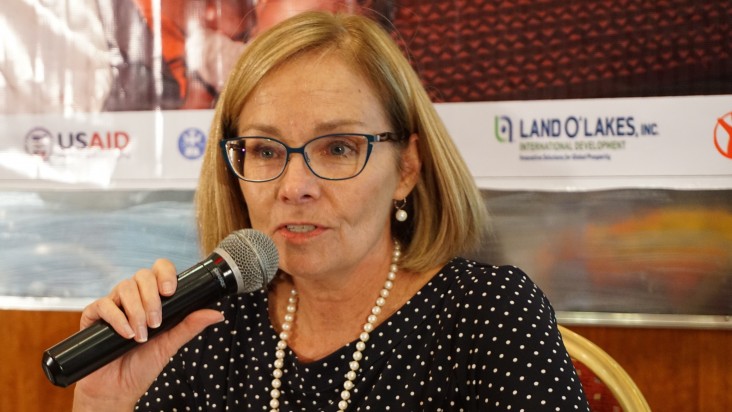
For Immediate Release
Addis Ababa, Ethiopia – The U.S. Agency for International Development (USAID), Save the Children and the Government of Ethiopia today celebrated the achievements of USAID’s multi-sector nutrition activity, Empowering New Generations to Improve Nutrition and Economic Opportunities (commonly known as ENGINE). The activity provided nutrition services for more than 5.6 million children under five years of age and reduced child chronic malnutrition in targeted areas by 16 percent.
The damage caused by malnutrition during the first 1,000 days of life—from the start of a woman’s pregnancy to the child’s second birthday—is usually irreversible in terms of its negative impact on the child’s health, cognitive development, physical growth, and school and work performance later in life. Twenty-seven percent of women in Ethiopia are thin or malnourished and 40.1 percent of children suffer from stunting.
Implemented by Save the Children and partners, the activity addressed the underlying causes of stunting including poor maternal and child feeding practices, poor access to diversified foods, limited access to quality nutrition services, and poor household sanitation and hygiene through sustainable, coordinated interventions, enabling them to lead healthier and more productive lives.
The nutrition activity worked with various government partners, particularly the ministries of health, agriculture and education, as well as local non-governmental organizations to improve the nutritional status of communities. Additionally, the activity provided technical support to the Government of Ethiopia’s implementation of the multi-sectoral National Nutrition Program and was a part of the U.S. Government’s Global Health and Feed the Future initiatives.
Through its implementation in the Amhara, Oromia, SNNP and Tigray regions from 2011 to 2016, the number of children accessing an adequately diverse diet increased from 12.2 to 29.1 percent, the number of women initiating breastfeeding within one hour of birth rose from 38.5 to 67.9 percent, and the number of pregnant women accessing iron folate supplements increased from 29.6 to 65.9 percent. To achieve these results, the activity trained more than 107,000 people on nutrition conscious farming and livestock rearing and more than 26,000 people on child health and nutrition. Additionally, USAID reached more than 15,000 vulnerable households with homestead gardening, rearing of small livestock and village savings activities that improved their household economic and nutrition status.
USAID will continue supporting efforts to improve the nutritional status of women and children through the Growth through Nutrition activity implemented by Save the Children, which will run from 2016 to 2021.







Comment
Make a general inquiry or suggest an improvement.